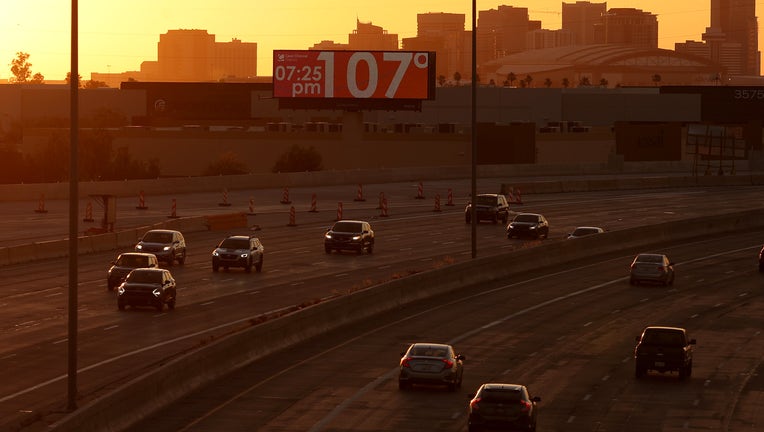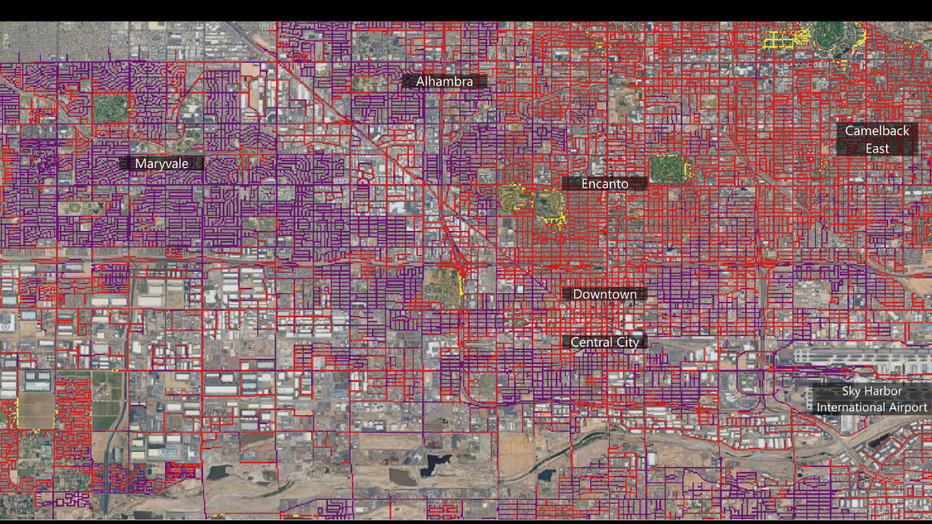Phoenix heat experts expect 2024 to break the record for hottest summer in history

PHOENIX, ARIZONA - JUNE 05: A billboard shows the current temperature over 100 degrees on June 05, 2024 in Phoenix, Arizona. (Photo by Justin Sullivan/Getty Images)
PHOENIX - This week Phoenix broke another heat record. The metro area reached 118 degrees on Monday, and according to the National Weather Service, that was the first time in the city’s history it ever got that hot on July 8th. So what is changing about our summers?
The people I talk to fall into two groups. One says Phoenix is getting hotter. The other says hot-is-hot-is-hot, and Phoenix has always been hot.
The experts say, you are not just imagining it, Phoenix is most definitely getting hotter.

Phoenix on pace for hottest summer ever this year
Record-breaking temperatures have littered the forecasts so far this summer putting Phoenix on pace fore its hottest season yet. FOX 10's Ashlie Rodriguez has the story.
Depending on who you ask, you might get different answers about whether Phoenix is getting hotter.
But after yet another week of being smothered in the blistering temps of an excessive heat warning, one has to wonder: What is going on?
"It's too hot to handle; this cement is about to melt my sandals," said one Phoenician.
"All you have to do is look at the records," says Sean Benedict, meteorologist.
What are the records?
The National Weather Service says this summer is on pace to be the hottest in Phoenix history, breaking last year's record average temperature of 97 degrees.
At the current pace we’re at now, our average temperature will be nearly 100 degrees.
June was the hottest June in Phoenix of all time with an average of 97 degrees. The previous record was 2021 at 95 degrees.
And just to hammer home how hot it's getting, the record for 55 days with a temperature of 110° or higher was set last year. The previous record before that was 2020.
This year, we’ve already had 23 days of excessive heat, meaning we will outpace previous records. Those records are in reach in part because of the higher-than-average overnight low temperatures.
"We are seeing temperatures increasing, but surprisingly it's more the nighttime temperatures that are increasing," says ASU Climatologist Erinanne M. Saffell. "The nighttime temperatures are increasing three times the amount that daytime temperatures are increasing."
Why have average temperatures been so hot?
Experts say it's all the asphalt's fault, creating a heat island that adds anywhere from 8-to-11 degrees to the temperature.
A NASA ECOSTRESS map shows surface temperatures in Phoenix on June 19 when the high was 106 degrees.

(NASA ECOSTRESS Map)
NASA found miles of asphalt and concrete registering at 120 degrees.
At Sky Harbor Airport, NASA found the pavement to be around 140 degrees.
"We've got to figure out: ‘how do we keep the city a little cooler?’" says Shel Winkley, a Climate Engagement Specialist.
Experts say Phoenix will continue to get hotter and hotter unless we commit to mitigating the heat by adding more trees, painting the asphalt white and finding ways to reflect sunlight back into space.
"Those types of things done on a small scale, but done several times over across the city will be very helpful in mitigating some of this heat," says Winkley.

